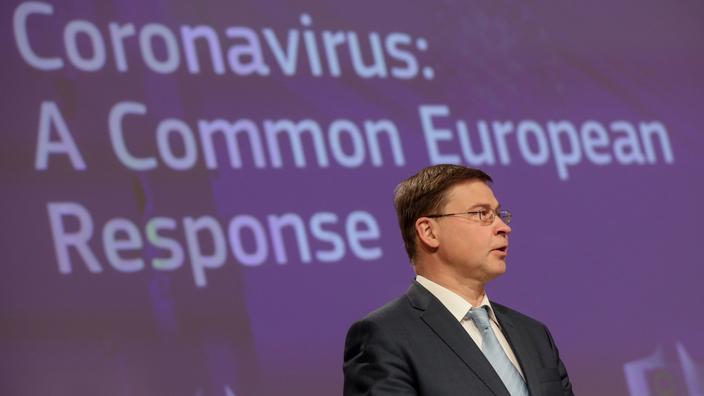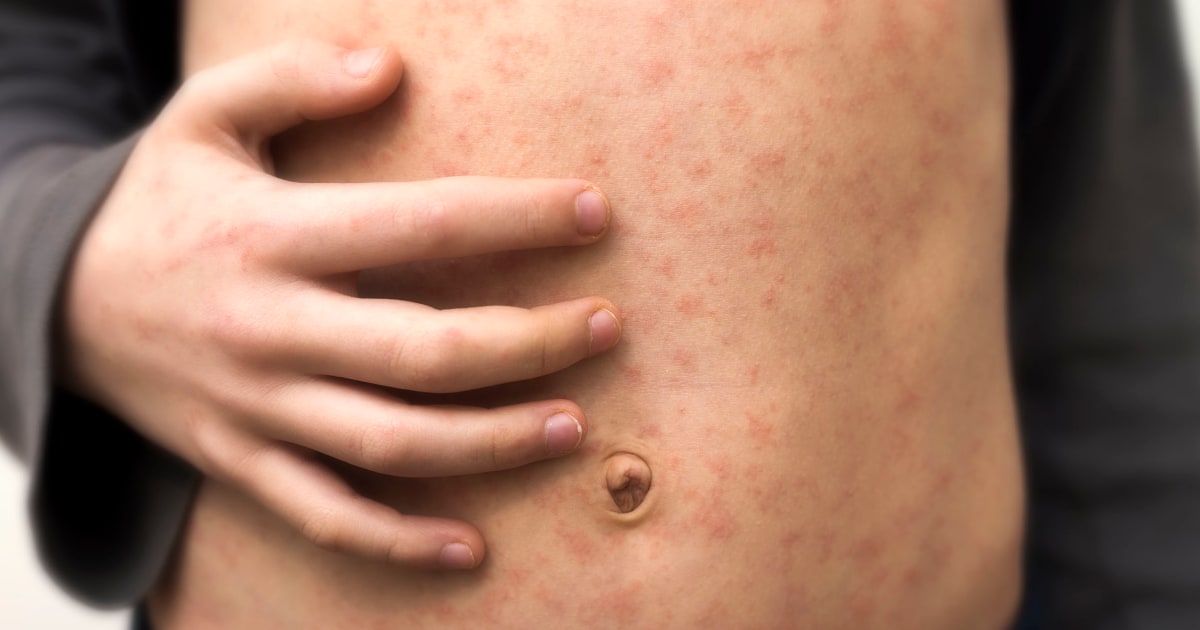This is one of the weapons brandished by Brussels against vaccine manufacturers: if laboratories do not respect their contractual commitments, member countries will be able to block their exports of doses to a country outside the Union.
Set up several months ago, this "
transparency and authorization mechanism for exports of vaccines against Covid-19
" allows the 27 to put pressure on producers, in order to force them to deliver the number of vaccines indicated in contracts.
Le Figaro
takes stock of the main aspects of this system.
Read also: EU threatens to ban vaccine exports to certain countries
Why such a device?
Since the start of the vaccination campaign, the European Union has suffered scathing criticism of its handling of the dossier.
The doses are too few and the deliveries too slow.
The member countries, which are among the richest in the world, are overtaken by others who are sometimes less powerful, such as Chile, Morocco, Israel, Qatar or Iceland, according to Our World in data.
Faced with the attacks and the slowdown in deliveries observed in particular on the side of AstraZeneca, the European Commission unsheathed, at the end of January, this mechanism, which "
provides for authorizations to export COVID-19 vaccines outside the EU
".
Several arguments are put forward: putting pressure on laboratories, "to
provide more clarity with regard to the production of vaccines in the EU and their export
", according to European Commissioner Valdis Dombrovskis, and, politically, to prove that the Union is doing everything to ensure that its citizens are vaccinated as quickly as possible.
How does it work, concretely?
The control regime applies to companies with which Brussels has concluded Advance Purchase Contracts (CAA).
Export authorization is given "
by the Member States where products covered
" by the system
are manufactured
: it is only granted "
to the extent that the volume of exports of said products is not as it constitutes a threat to the continuous supply of the vaccines necessary for the performance of AAC between the Union and the vaccine manufacturers
”, specifies the text.
The member country must, however, first seek “
the opinion of the Commission and take a decision in accordance with this opinion
”.
Ultimately, the decision to ban the export is pronounced by the customs authorities of the country in which the doses are produced.
In the event of a ban, the doses remain the property of the laboratory, which can use them as it wishes.
Two changes were introduced at the end of March by the Commission.
First, a principle of reciprocity applies: the country receiving the exports must also authorize exports to the Union, so that the exchanges do not take place at the expense of the 27. “
If the country of destination [... ] limits its own vaccine exports [...] it may be appropriate to consider whether exports to this country are justified,
”said Commissioner Valdis Dombrovskis.
Then, a proportionality criterion is integrated: the epidemiological situation of the country of destination, its vaccination rate or its vaccine reserve must be scrutinized, to ensure that the vaccines are transported to territories that really need them.
Finally, "
it is necessary to distinguish between poorly performing companies and those, performing, which are on track to meet their contractual obligations
," said Valdis Dombrovskis: a means of separating laboratories catching up with their backlog and others, such as AstraZeneca, still in difficulty.
How long will the mechanism be active?
In theory, the device was to remain in force "
until the end of March 2021
".
It was however extended, on March 11, "
until the end of June
", in the face of persistent delays in deliveries of doses.
"
We expect the companies with which we have signed a contract to fulfill their obligations towards EU citizens
", then warned the Commissioner for Health and Food Safety, Stella Kyriakides.
Which exports are not affected by the device?
Several types of exports are not affected by the prohibitions, including those intended for the Covax mechanism or those linked to “
humanitarian emergencies
”.
Also, “
neighboring economies and countries, the Member States of the European Free Trade Area and the Western Balkans
” are excluded from the mechanism, as are “
the Faroe Islands, Andorra, San Marino and the State of the City. of the Vatican
”.
At the end of March, the Union tightened conditions, by including in the system 17 countries previously exempt from export authorization.
This concerns in particular Albania, Israel, Jordan, Iceland, Norway, Lebanon and Switzerland.
Several countries remain exempt, including Turkey, Egypt, Algeria, Morocco or Ukraine.
Has it already been activated?
Since the establishment of the device at the end of January, 380 requests for vaccine exports to 33 countries have been approved, according to the European Commission.
In total, these exports represent 43 million doses, distributed mainly between ten countries, including the United Kingdom (10.9 million), Canada (6.6 million), Japan (5.4 million), Mexico ( 4.9 million) or Saudi Arabia, Singapore and Chile (1.5 million each).
Only one export request was blocked, by Italy: Rome transmitted on March 2 its refusal to send 250,700 doses of AstraZeneca vaccine to Australia.
A decision justified by the large quantity of doses concerned, the fact that Australia is not a priority territory nor particularly affected by the pandemic at the moment, the "
persistent shortage of vaccines in the European Union
" as well as the multiple delays from AstraZeneca.
What do its detractors think?
Note that the mechanism does not provide for specific remedies that could appeal to a laboratory in the event of a dispute: the "
usual remedies provided for in European law
" therefore apply, explains a European source.
Some member countries are worried about the effects of the device: voices warned of a risk of disruption of the chains of exchange and production of vaccines.
Risks of escalation are also pointed out, in the event of an export ban.
Brussels, for its part, retorts that its mechanism is "
fully in line with the EU's international commitment within the framework of the World Trade Organization and the G20, and in line with what the EU has proposed in the context of the WTO initiative on trade and health
”.














